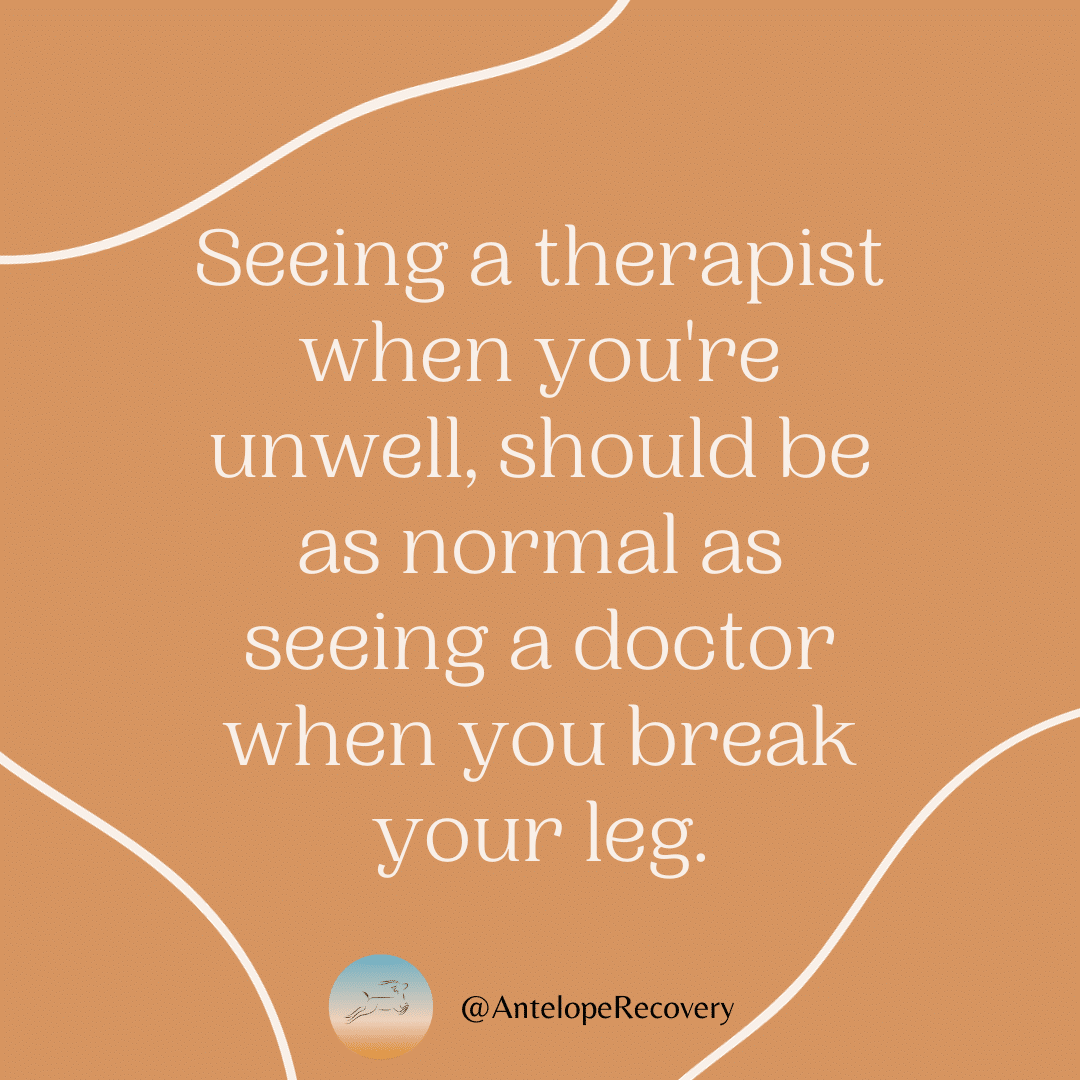It would be easy to point to insufficient funding, discrimination towards people with mental health issues, and mismanagement of treatment centers as the biggest problems in mental healthcare today. However, inaccurate and superstitious beliefs about mental health treatment and treatment techniques may be an even bigger issue. Every year, widely held stigmas against various treatment techniques prevent patients from receiving the care they need held by either or both the patient and provider.
The impact of stigmas held about mental health treatment.
To be clear, research confirms that discrimination against the mentally ill does still exist and is not an uncommon occurrence. One of the most common stigmas held around the mentally ill is a fear of being violently harmed or manipulated by them. This stigma could not be more wrong. Unfortunately enough, people with a mental health illness are far more likely to be victims of violence than perpetrators of violence. And that violence generally occurs due to a lack of appropriate care, not due to the presence of their illness.
Stigma against mental health treatment is easily seen when looking at electroshock therapy. This is one of the most stigmatized treatments for mental health patients. What images and ideas does the simple mention of electroshock therapy bring to mind for you? It’s no wonder that there is extreme resistance to receiving this treatment, considering its violent portrayal in movies and TV. However, electroshock therapy has a clinically proven 80% efficacy rate in treating depression. Only six facilities in the entire country offer it. This is a great example of the divide between the perception and reality of certain treatments and how we may be losing out on highly efficacious treatment plans for patients because of stigma.
It’s not just patients, families, and the public at large that hold unproductive ideas about treatments. Even therapists hold stigmas against clinically proven treatment modalities. Many therapists relate to their craft as more of an art than a science and are resistant to learning and implementing clinically proven therapies such as CBT. This can lead to very messy experiences for clients, who, for example, pay over $60,000 for inpatient treatment to end up not actually receiving relevant treatment techniques and protocols for their diagnosis.

The stigma against treatment for mental illness often comes down to variations of two beliefs
1. Mental illness is a social construct, and all treatment is a vast marketing conspiracy
People who share this belief often cite tribal or non-western societies, asking why they neither have names nor, seemingly, issues with mental illness in their communities. An example of this is seen from the modern Shaman, Malidome Some, who describes how, for his people of the Dagara tribe, the onset of mental illness is good news, a sign a healer is being born. There is a sense that because other parts of the world don’t describe mental illness, our experience of it must be a sign of a sick society. This belief places the burden of treatment on progressive social change and leaves mentally ill individuals with very few options other than to move to a new culture (which is generally not an option) or to relate to themselves as fundamentally wronged, oppressed, and alienated from their culture. Even if this is true, neither of these options tends to be helpful for someone going through a potentially chaotic and terrifying experience during the onset of mental illness.
When more people are receiving essential care for cancer or diabetes, that is seen as a wonderful thing; people are getting the help that they need. However, when more people are receiving medication for depression or bipolar disorder, it is seen as a scandal. This stigma against medication is not unfounded. The OxyContin scandal is one recent example of the failures of pharmaceutical intervention and was a public health tragedy. The process of rebuilding trust between pharmaceutical companies and the public will likely take time and reform. Unfortunately, this lack of trust in medication does stop patients from receiving potentially life-saving care.
2. People with mental illness need to work harder to feel better and not expect insurance to subsidize laziness
People who share this belief often believe that life is hard and it’s rough for everyone. There is a pick yourself up by the bootstraps mentality and an understanding that even when it feels impossible, you have to (and you can) try harder and keep going. This belief is incredibly empowering and speaks to the unlimited and beautiful potential of the individual. However, it overemphasizes an individual’s role in recovery and under-emphasizes the importance of medical intervention. Although this is an empowering sentiment, it stops many people from receiving life-saving care. This attitude can drastically minimize the seriousness of mental illness and leave those struggling alone and unable to reach out for help. This attitude can also prohibit policy changes that would allow for insurance to subsidize acute mental illness the same way we subsidize acute physical illness. The lack of care options for those who need it results in increased disability and shortens the life span of people with a diagnosis on average by 30 years.
Making sense of mental health is currently very challenging.
We have many different cultural attitudes, values, and complex social systems at play as we try to come together to take care of our loved ones. One way we can support each other in making sense of this field is through respectful dialogue with those who have different beliefs than we do. If you encounter a worldview or belief that is different from your own, we recommend…
- Ask thoughtful and curious questions about the other person’s worldview. Why do they think what they think? What do they value?
- If you find a contradiction in their worldview, ask about it with open curiosity.
- Stay calm – keep your nervous system regulated! If you can’t, take a break.
- Remember – people are not their ideas, stories, or thoughts! People are larger than their ideas.
- Stay in contact with the person, even if you disagree with their thoughts. Ideas change all the time – maintain mutual respect.
- Find neutral evidence you can share and discuss.
What now?
Addressing the stigmas surrounding mental health treatment is crucial in ensuring that individuals struggling with mental illness receive the support and care they need. We’ve delved into some of the origins of these stigmas and the myths that perpetuate them. The task of making sense of mental health can indeed be challenging, but with the right information and understanding, we can break down these barriers and create a more compassionate and inclusive approach to mental health care. At Antelope Recovery, we’re dedicated to dismantling these stigmas by offering comprehensive mental health services and working to change the conversation around mental health. If you or someone you know is seeking help, don’t hesitate to reach out. Together, we can foster a more accepting and supportive environment for those facing mental health challenges.


